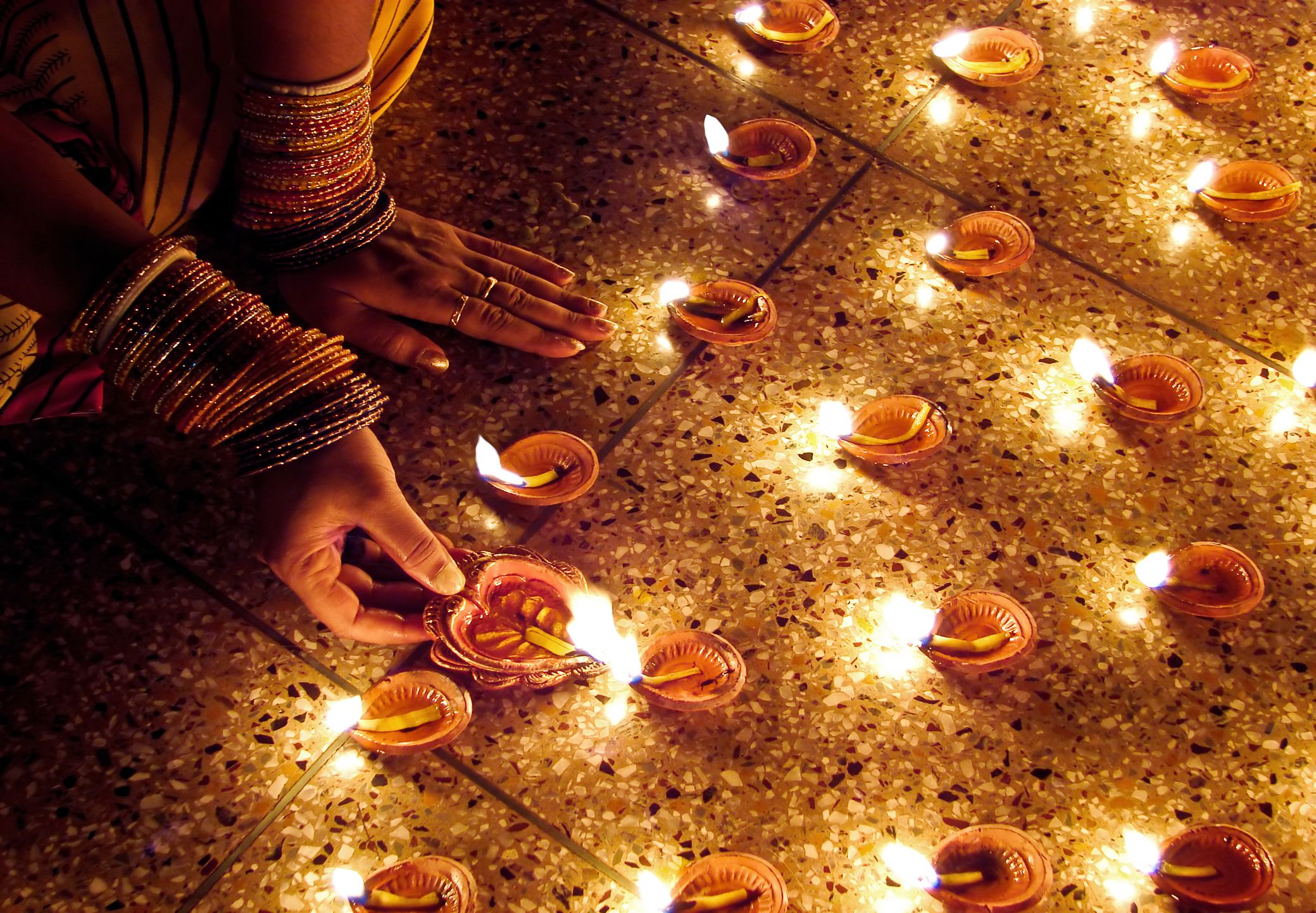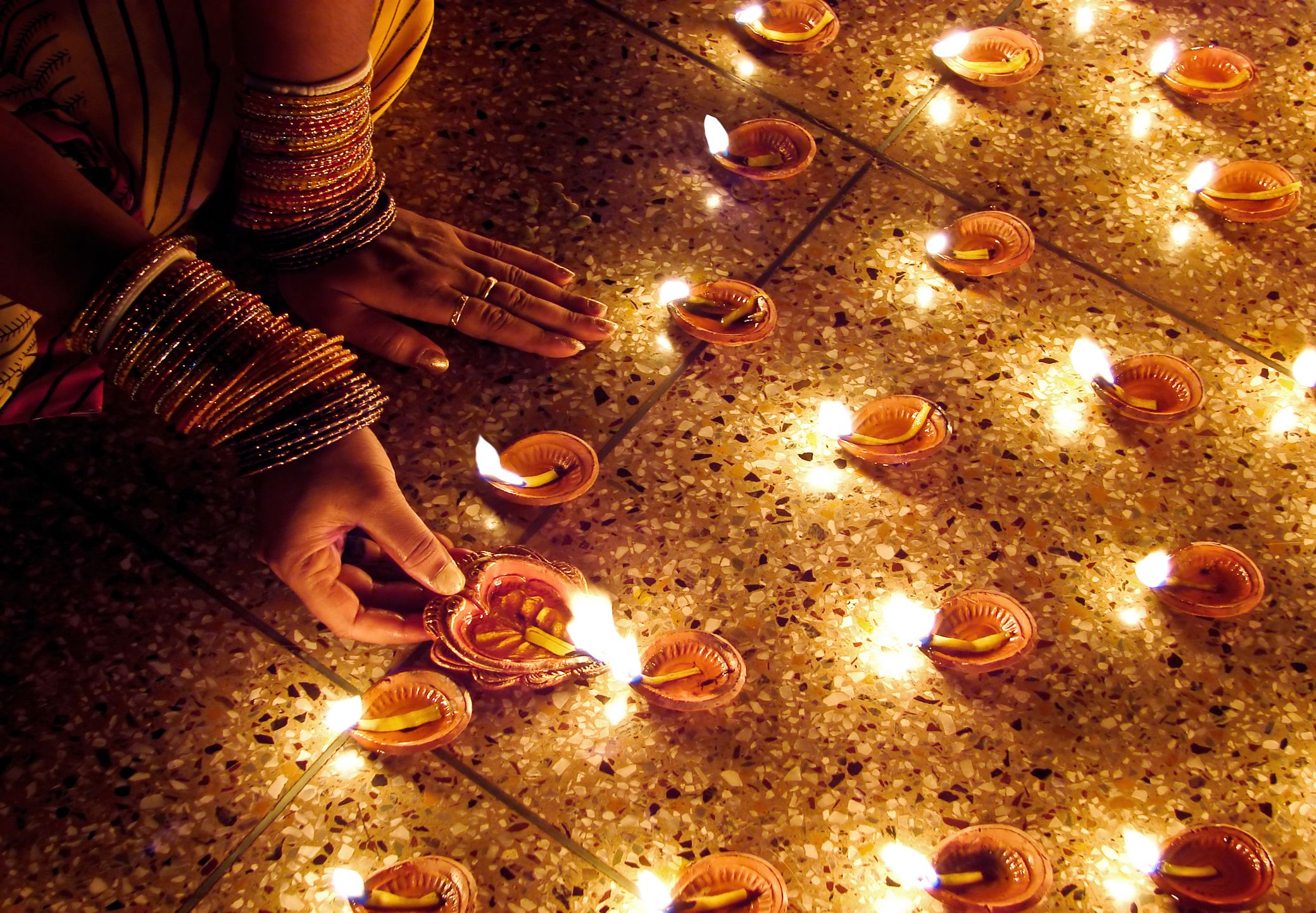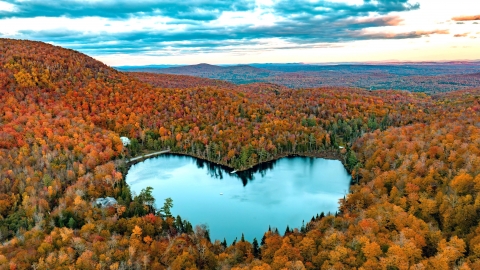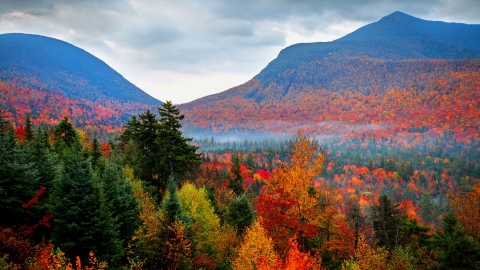Diwali, also known as Deepavali, is one of the most important festivals of the year not only in India but also in Nepal, Malaysia, Singapore, and other countries with South Asian communities. The festival is celebrated by Hindus, Jains, Buddhists, and Sikhs around the world.
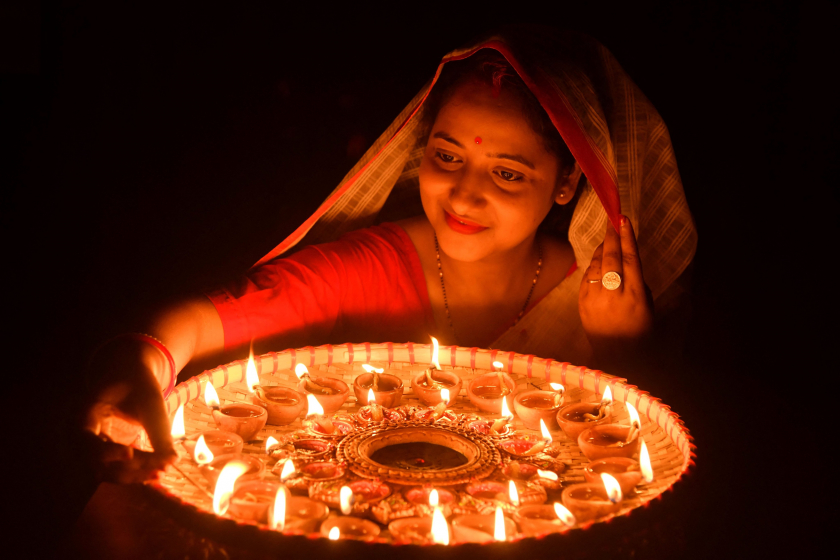
A woman lights an earthen lamp during Diwali, the Hindu festival of lights, at her home in Guwahati, India.
Diwali originated as a symbol of new beginnings and the victory of good over evil, of light over darkness. Furthermore, Diwali is an occasion for people in India to experience a warm festive atmosphere, cast aside animosities, and come together in joy and pray to the gods for blessings. During this festival, families gather, decorate their homes, and display various kinds of lights in front of their houses.
In India, Diwali is a national holiday. On Diwali night, Hindus wear their finest clothes and light candles inside and outside their homes. Family members and close friends usually socialize and exchange gifts. In the evening, they hold private prayers to the Hindu goddess Lakshmi, a symbol of good fortune and prosperity.
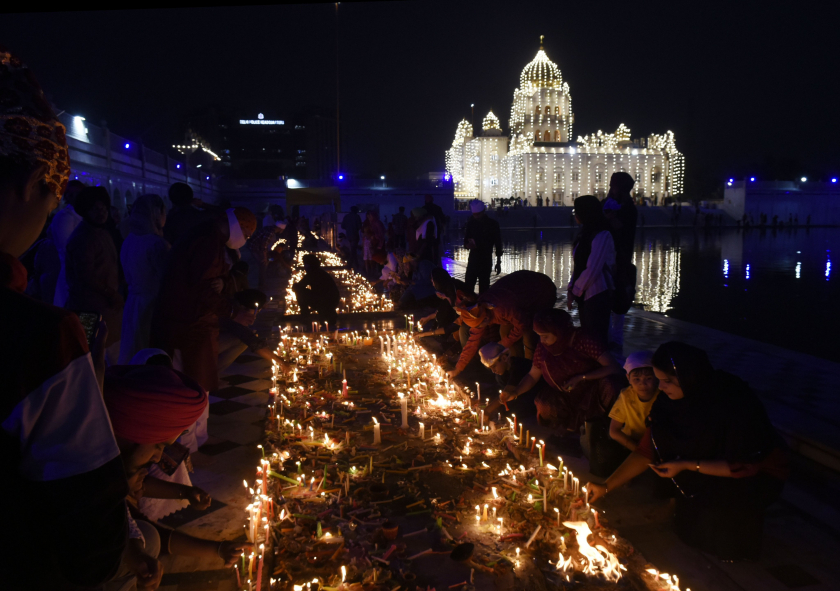
Sikh devotees light candles at sunset during Diwali at the illuminated Gurudwara Bangla Sahib temple in New Delhi.
Traditionally, on Diwali – the night considered the darkest moon of the year – people in India would pour oil into clay lamps to light them up and leave them burning all night to welcome the goddess Lakshmi. However, nowadays, these clay oil lamps have been replaced by strings of flashing electric lights hung all around the house. Candles and fireworks are also essential to the Diwali festival to ward off evil spirits and welcome the return of the god Ram after years of exile.
The Diwali festival lasts for five days, each day having a different name and meaning, with many events taking place.
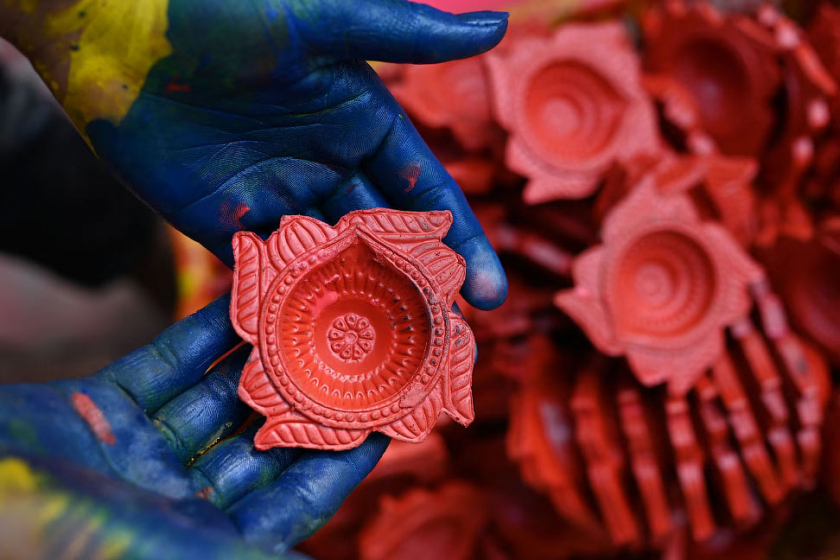
Potters make and sell earthen lamps before Diwali, along a roadside in New Delhi.
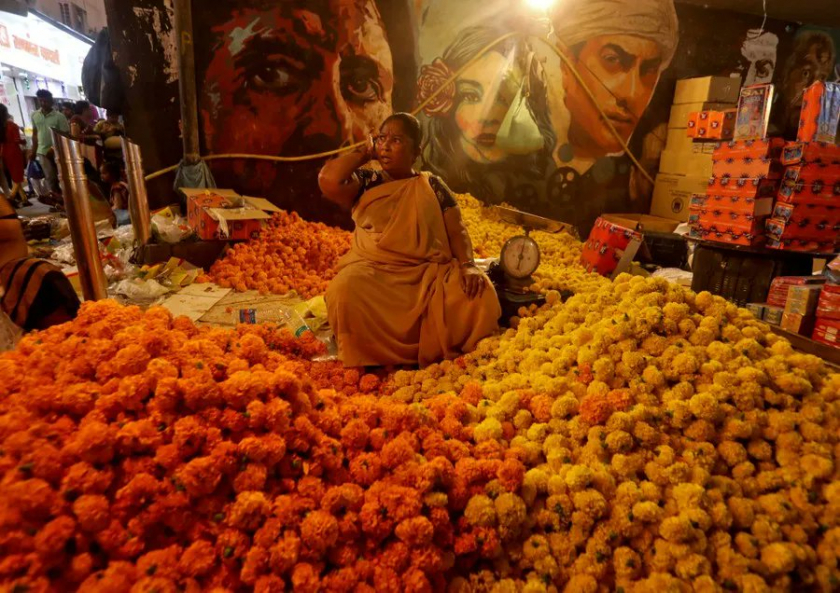
A woman selling flowers waits for customers at the market before Diwali in Mumbai.
The first day of the festival is called Dhanatrayodashi (or Dhan Teras), a day of prosperity and wealth. This is the 13th day of the waning moon of the month of Kartika. On this day, people often go to the markets to buy lucky ornaments, believing that this will bring prosperity and good fortune for the coming year. Clay oil lamps are lit day and night. In the evenings during the festival, when the diyas (lamps and candles) are lit to ward off darkness – where evil spirits reside – Indian families also perform rituals to worship Lakshmi. They praise the goddess Lakshmi with the "Bhajan" song and offer her the sweet cakes "Navedya". In southern India, people believe that the goddess Lakshmi is an incarnation of cows, so they are also beautifully decorated and worshipped during this festival.
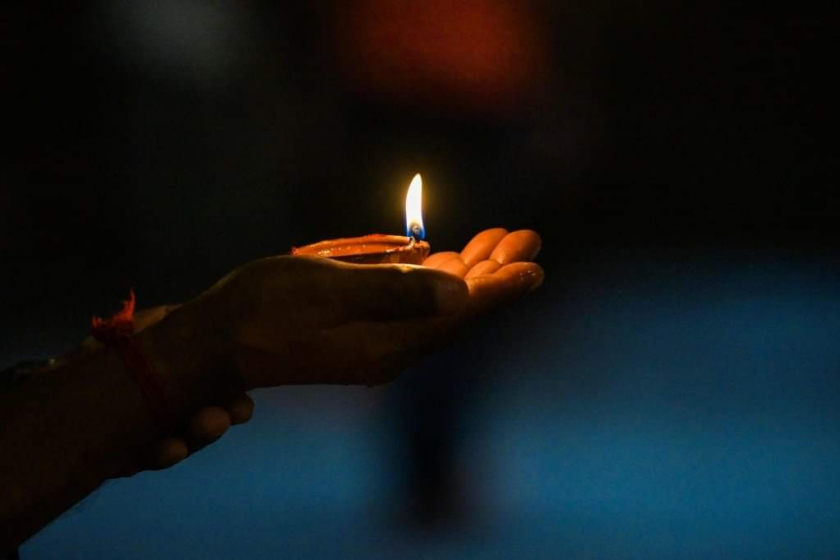
Devotees hold oil lamps while praying during Diwali at a temple in Colombo, Sri Lanka.
The second day – Naraka Chaturdashi, or Choti Diwali – is the day the demon Narakasura was killed, signifying the triumph of good over evil and light over darkness. Traditionally, people bathe early in the morning, before sunrise, on Choti Diwali. While children bathe, fireworks and firecrackers are set off to create a lively and joyful atmosphere. After bathing, everyone enjoys steamed noodles with sugar and milk or rice cakes with curdled milk. On this second day of the festival, Indians light lamps and pray all day. They believe that the light from the diyas not only dispels the darkness of ignorance but also foreshadows a bright and joyful tomorrow.
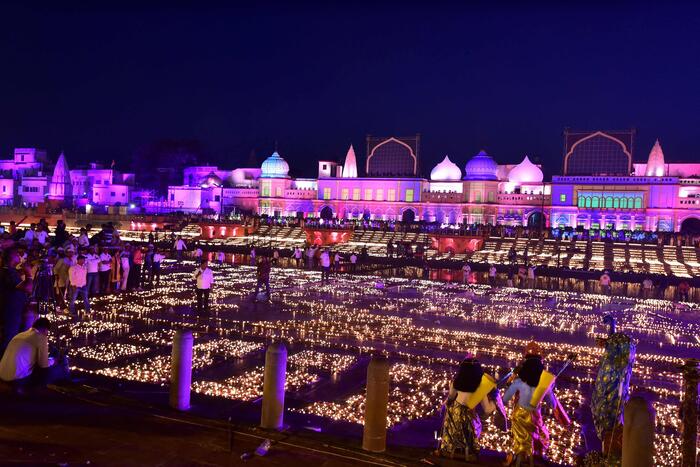
Devout worshippers light earthen lamps on the banks of the Sarayu River on the eve of Diwali, in Ayodhya, India.
The third day is Diwali, the day of the goddess Lakshmi Puja – the goddess of auspicious beginnings. This is the most important and fortunate day of the festival. On Diwali night, Hindus wear their newest or finest clothes. Women wear elaborate traditional saries, highlighting their mysterious and alluring beauty. They light diyas both inside and outside their homes to show righteousness and participate in family puja (prayer).
After the Puja prayer, people compete to set off fireworks for about two hours, from around 10 pm to midnight, illuminating the entire Indian landscape in a dazzling display of light. Afterward, they gather for family feasts and exchange gifts. On Diwali, people also enjoy gambling together, as according to Shiva-Parvati legend, anyone who gambles on Diwali will prosper all year.
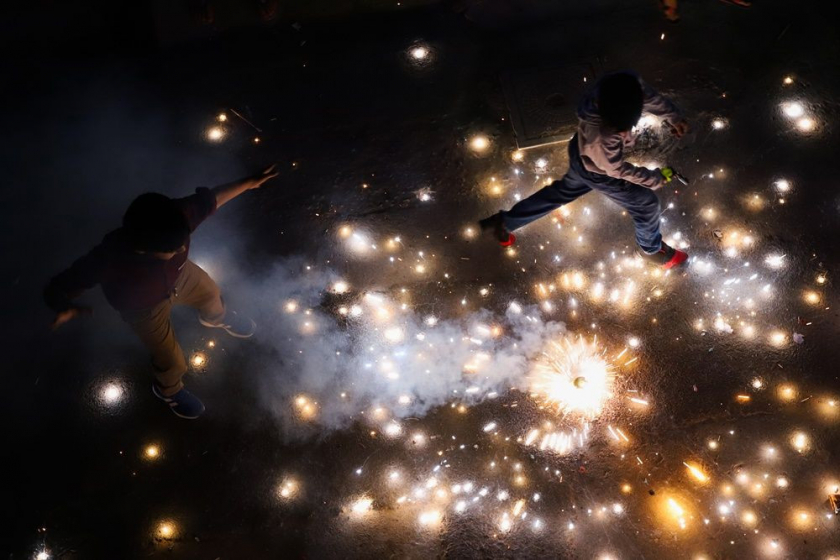
Residents light firecrackers during the Diwali festival in Prayagraj, Uttar Pradesh, India.
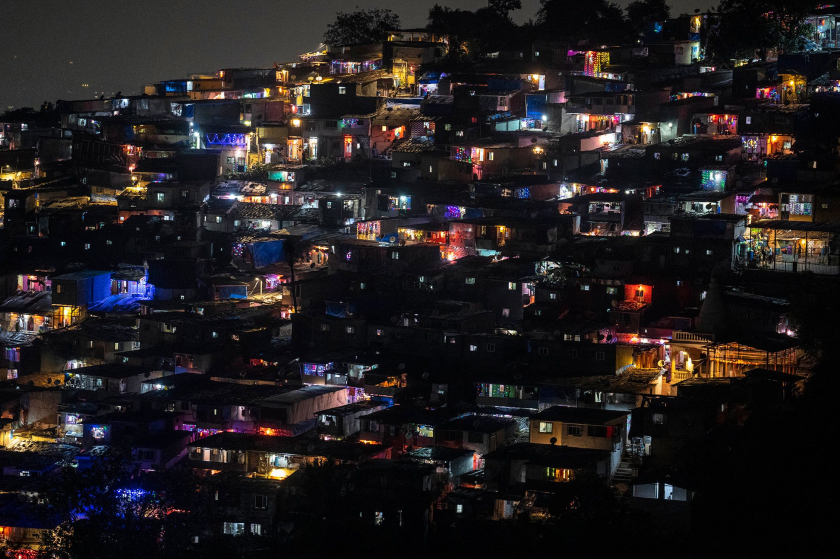
Houses are decorated with lanterns and lights during Diwali in Mumbai.
The fourth day of the festival is Govardhan Puja (also known as Annakut), the day Krishna defeated Indra. On this day, statues of the gods in the temples are bathed in milk and dressed in beautiful robes and adorned with precious jewelry. After the offerings, people present cakes and sweets to the gods.
The food is beautifully decorated and arranged into small mountains, symbolizing the mountain that Krishna had to overcome. Also on this day during the Diwali festival in India, many families hold the Gudi Padwa ceremony, symbolizing the deep and enduring love between husband and wife. The wife applies a red tilak dot to her forehead, wears flowers, and prays for her husband's longevity, while the husband gives his wife gifts.
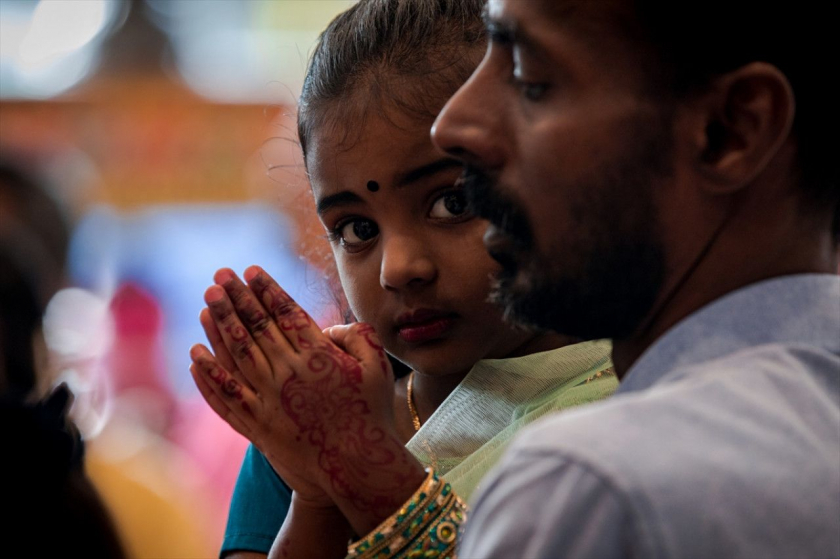
Hindu devotees from Malaysia and neighboring countries gathered at Batu Caves to perform morning prayers and celebrate the first day of the Diwali festival in Malaysia.
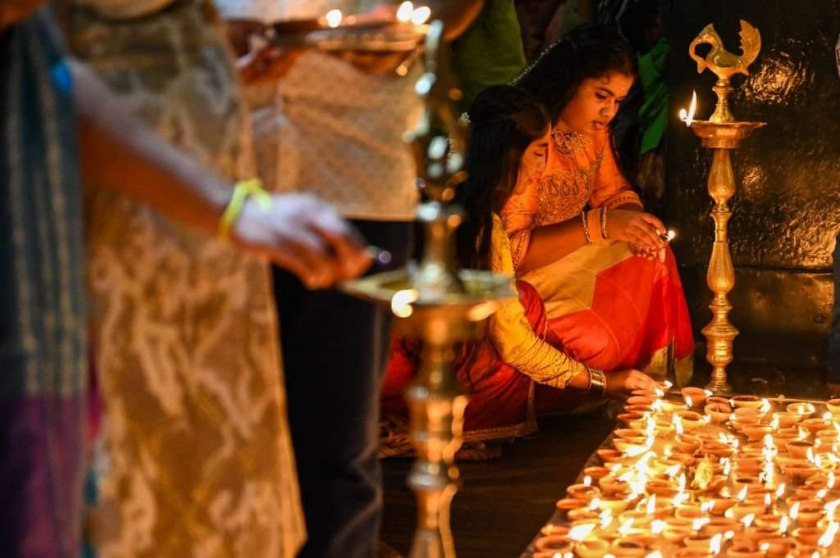
Devout worshippers light oil lamps while praying during Diwali at a temple in Colombo, Sri Lanka.
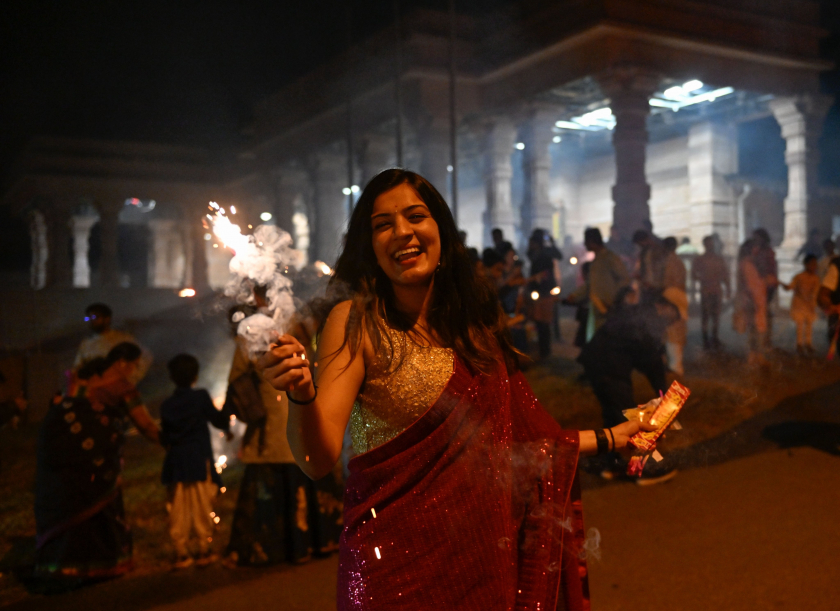
People participate in Diwali celebrations at the Charlotte Hindu Center in North Carolina.
Thursday, called Bhaiya Duj in Hindi or Bhau Beej in Marathi-speaking communities, is a day when siblings in a family meet to express their care and affection for one another.
Amidst the dazzling, shimmering lights, the atmosphere of the Diwali festival becomes even more vibrant with captivating traditional Indian dances, popular Bollywood songs, and spectacular circus performances. Adding to the lively atmosphere is the opportunity to enjoy traditional Indian delicacies such as goat curry and marinated chicken wings. In addition, there are fun stalls for children, such as a dancing castle and sand painting and sculpting activities.
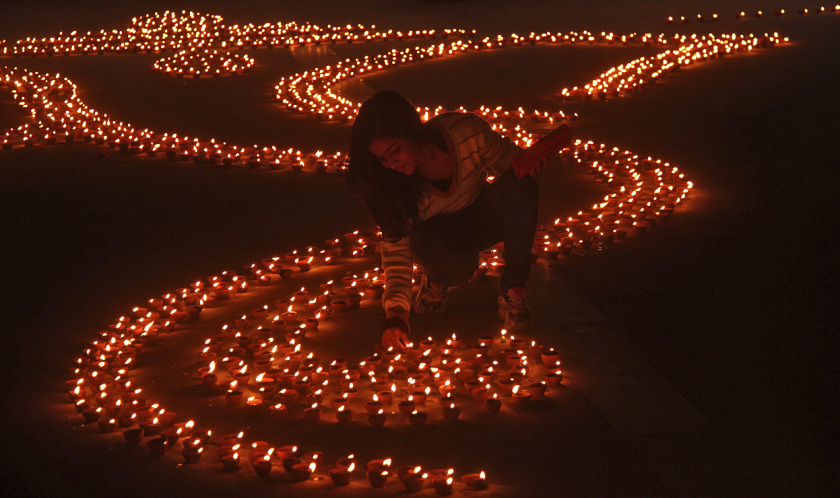
Diwali is one of the most important occasions in the Indian festival landscape. Known as the "festival of lights," Diwali celebrates the victory of light over evil and wickedness.
Under the dazzling, shimmering lights, the lively atmosphere of the festival, combined with traditional Indian dances set to popular Bollywood music, makes the Diwali festival more meaningful than ever. Furthermore, at Diwali, people can also enjoy dishes considered traditional Indian specialties.

 VI
VI EN
EN



